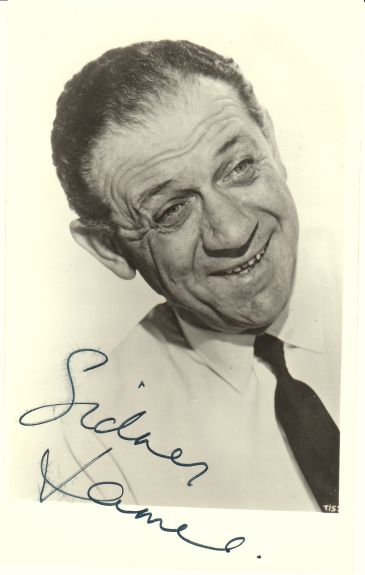


Theirs is a harmless daydream, an ultimately mild gesture of defiance against conformity. For all the brilliance of their initial plan, they are finally undone by a very English failing, a lack of competence in foreign languages - Pendlebury's instruction to his French assistant not to sell paperweights from the boxes marked 'R' is misunderstood, because the English 'R' sounds like the French 'A'.


Holland and Pendlebury - both nice, gentle and unthreatening in their non-conformity (this is a crime without victims) - are light years away from the more menacing (though no more successful) gang of The Ladykillers (d. Alexander Mackendrick, 1955). Even their partners-in-crime, the Cockney professional thieves Lackery (Sidney James) and Shorty (Alfie Bass) carry not a grain of ruthlessness: they are so trustful of Holland and Pendlebury that they even risk losing their share of the profits (and presumably do).




MONTHLY FILM BULLETIN
THE BRITISH FILM INSTITUTE
Volume 18, No.210, July 1951, page 292
LAVENDER HILL MOB, THE (1951)
Officials at the Bank consider Mr. Holland a meek, respectable and honest employee in the modest job of supervising deliveries of bullion from gold refineries to the Bank. Mr. Holland's dream, however, is to appropriate £1,000,000 in gold bars for himself, escape from his dull boarding house existence and live in luxury for the remainder of his life. He has, over the years, conceived a plan for the actual theft, and when Mr. Pendlebury, manufacturer of souvenir articles for export, sets up a small foundry in the boarding house he realises that here is an opportunity for him to melt the loot and smuggle it out of the country. Quickly seduced into entering the conspiracy, Pendlebury agrees to transport the gold to France in Eiffel Tower paperweights: two professional thieves, Lackery and Shorty, are brought in to help. Holland and Pendlebury go to Paris to collect their booty, and discover that six of the souvenirs have been innocently purchased by a party of English schoolgirls. In their efforts to trace the girls, they incur police suspicion. Holland and Pendlebury manage to steal a police car and broadcast false messages, but Pendlebury is caught. Holland escapes to Brazil, but the law catches up with him there.
Once again Ealing Studios have produced a bright and entertaining comedy, scripted by the author of Hue and Cry, Passport to Pimlico and others. With the exception of two unnecessarily long episodes on the Eiffel Tower and at the Calais Customs Building, amusing situations and dialogue are well paced and sustained throughout. The climax is delightful.
Alec Guinness as Holland and Stanley Holloway as the rhetorical Mr. Pendlebury play excellently together; in support, Marjorie Fielding as an ardent fan of crime stories, Edie Martin as the landlady, and Sidney James and Alfie Bass as the professional thieves are particularly good.
It is interesting to note that Ealing have sensibly disregarded the 90 minutes first feature rule, and cut the running time to 78 minutes.

No comments:
Post a Comment